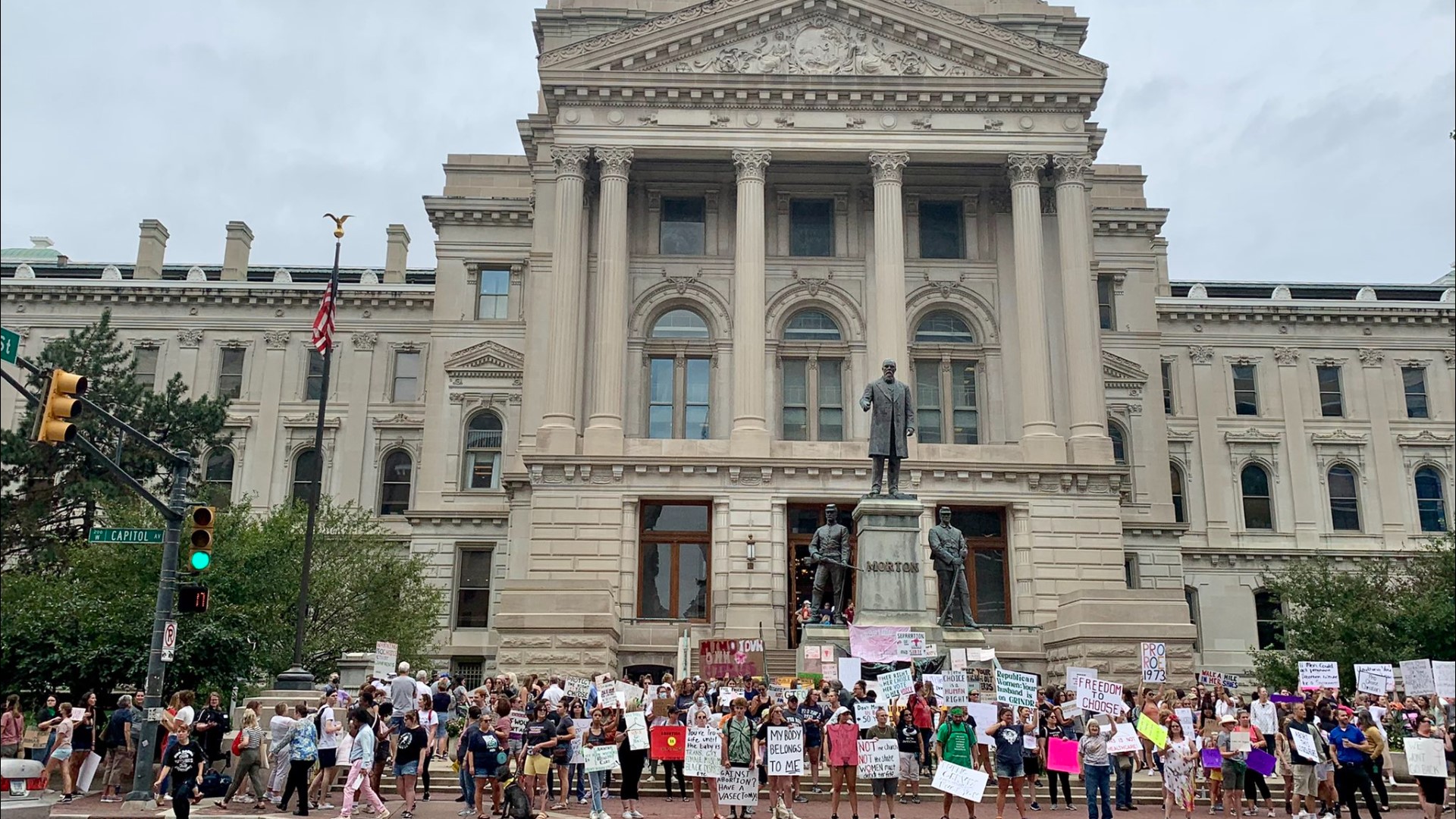INDIANAPOLIS — Indiana's abortion ban is now in effect with very few exceptions to the law. The only procedures allowed are for women who were raped, victims of incest, whose lives are in danger or whose fetus has a fatal condition.
Local health care providers are trying to navigate what exactly this means for their patients going forward.
Beth White, president and CEO of the Indiana Coalition to End Sexual Assault and Human Trafficking, told 13News one in seven women who are raped will become pregnant, according to data the Centers for Disease Control and Prevention released in June.
White has been traveling the state, talking to providers who are getting a lot of questions from patients.
"I'm not criticizing the hospitals, but they don't know what they're doing. They don't know how this is going to work, and confusion on top of trauma is going to be a recipe for an awful lot of suffering," White said. "What we are trying to do is get as much information as we can and share it out with the public and the community as soon as we know which are doing abortion care and which are not."
She is concerned about three aspects of the law. Rape and incest survivors do have access to an abortion within 10 weeks. She says this is too short, especially for young victims and children who are mostly victims of incest, to make a decision. There are now fewer locations where abortion care will be available. Finally, they don't know exactly where abortion care can be accessed.
"We are working so hard to gather the information, to disseminate the information, to make sure people who are victimized and traumatized by sexual violence aren't further victimized by a structure they cannot navigate, and they do not understand," White said.
IU Health has said it will continue to provide abortion care. White said other hospitals are opting out because it's too risky from a business sense.
White is working to figure out who is and who isn't planning to offer abortion care because there is not a place to go to find that information. She said if it means calling every hospital in Indiana, she will.
"Where does a person go? Where, if you have to go to a hospital only, is that the emergency room? You are not experiencing a medical emergency if you're under 10 weeks and you've decided abortion is the right decision for you. Do you have to have a relationship with the hospital already? What about cost? How much is it going to cost?" White said.
White is receiving questions about "morning after pills." She said morning after pills and prescription medication abortions through the mail are still legal. However, some pharmaceutical companies have said they will not send them to Indiana.
White is also concerned about an increase in human trafficking. She said vulnerable, desperate women with limited resources could travel out of the state for an abortion and be exploited by someone offering to drive and instead target them.

